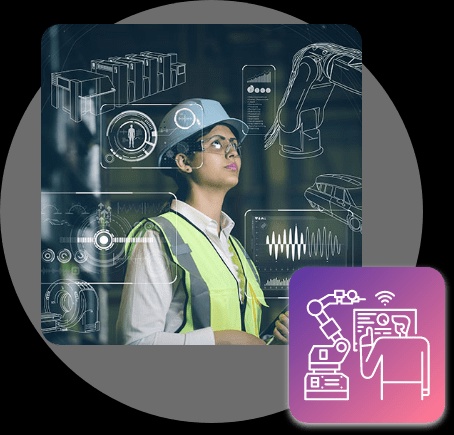Are you tired of high electricity bills and not knowing where all the energy is being consumed in your home or office? Then it's time to consider a smart energy monitoring system! With the rise of Internet of Things (IoT) technology, energy monitoring systems have undergone a significant transformation. IoT-based energy monitoring systems have revolutionized the way we manage our energy consumption, providing real-time data insights and efficient control over energy usage.
Let's explore how these systems are changing the game for energy efficiency.
What is a Smart Energy Monitoring System?
A smart energy monitoring system is an advanced technology device designed to measure and analyze your energy consumption. It integrates various sensors, smart algorithms, and data analytics to provide you with real-time data insights into your electricity consumption. The system can be installed in homes, offices, factories, or any other type of building. These systems are revolutionizing the way we manage and monitor our energy consumption, allowing us to identify areas where we can reduce energy usage, save money, and minimize our carbon footprint.

How Do Smart Energy Monitoring Systems Work?
Smart energy monitoring systems capture energy data through your existing electrical infrastructure. They measure energy usage, track trends, and provide analytics to help you make informed decisions about your energy usage. They can also detect anomalies and patterns in your electricity usage, providing you with insights into potential energy savings.
The system is composed of various components including sensors, meters, gateways, and controllers. The sensors are installed in your electrical panels or circuits to collect data such as voltage, current, power factor, and frequency measurements. This data is then sent to the central gateway and analyzed through the system's software.
Smart energy monitoring systems leverage networked devices and sensors to collect, transmit, and analyze energy consumption data. These devices are connected to a central hub or gateway, which captures data in real-time from various energy-consuming sources such as appliances, circuits, or entire buildings.
The collected data is then transmitted securely to cloud-based platforms where advanced analytics algorithms process the information. Users can access this valuable data through user-friendly dashboards and mobile applications, enabling them to monitor energy patterns, detect anomalies, and make informed decisions for energy efficiency.
Smart energy monitoring systems can also be integrated with other systems such as heating, ventilation, and air conditioning systems (HVAC), lighting systems, and security systems. Integration with these systems enables the monitoring of other appliances and devices, providing more insight for overall energy management.
Benefits of Smart Energy Monitoring Systems
IoT-based smart energy monitoring systems have transformed the way we monitor, manage, and optimize energy consumption. With real-time data insights, remote control capabilities, advanced analytics, and improved sustainability, these systems provide an innovative solution for energy efficiency. By embracing this technology, we can lead the way towards a greener and more sustainable future.
Smart energy monitoring systems offer multiple benefits, some of which are listed here:
Real-time Data Insights
With IoT technology, energy data is collected in real-time, providing accurate and up-to-date information on energy consumption patterns. This allows users to identify inefficiencies, device malfunctions, or wastage promptly and take immediate action.
Remote Monitoring and Control
One of the key advantages of IoT-based energy monitoring systems is the ability to remotely monitor and control energy usage. Whether you're at home or away, you can access the system through your smartphone or computer to view energy insights and make adjustments to optimize consumption.
Advanced Analytics and Predictive Maintenance
IoT systems integrate advanced analytics algorithms that not only provide real-time insights but also enable predictive maintenance. By analyzing historical data and patterns, the system can detect potential issues or failures in energy-consuming devices, allowing for proactive maintenance and improved longevity.
Cost Reduction and Energy Efficiency
By identifying areas of high energy consumption and wastage, IoT-based energy monitoring systems help reduce overall energy costs. With real-time data and analytics, users can make informed decisions to optimize energy consumption, leading to significant energy savings and increased efficiency.
Sustainability and Environmental Impact
By actively monitoring and controlling energy consumption, IoT-based systems contribute to sustainability efforts by reducing carbon footprints. They help promote more responsible and efficient energy usage, aligning with environmental initiatives and goals.
Easy to Use
Smart energy monitoring systems are user-friendly, providing real-time monitoring dashboards and detailed analytics to help you manage your electricity usage.
Conclusion
Smart energy monitoring systems are an excellent solution for anyone looking to reduce their energy consumption and save money. With real-time monitoring, alerts for abnormalities, and detailed analytics, reducing your energy consumption has never been easier. Additionally, you'll also do your bit towards preserving the environment.


No comments yet